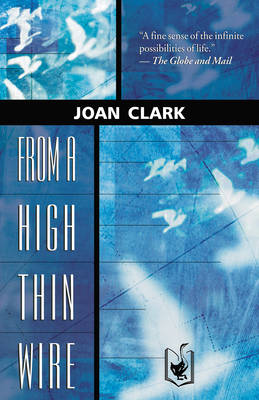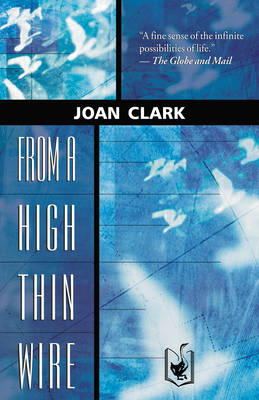
- Retrait gratuit dans votre magasin Club
- 7.000.000 titres dans notre catalogue
- Payer en toute sécurité
- Toujours un magasin près de chez vous
- Retrait gratuit dans votre magasin Club
- 7.000.0000 titres dans notre catalogue
- Payer en toute sécurité
- Toujours un magasin près de chez vous
Description
In 1982, From a High Thin Wire introduced a powerful new voice into Canadian fiction. Twenty years later, Joan Clark, a powerhouse in Canadian fiction, re-edited her debut collection from the perspective of a more mature writer -- an unusual feat for most writers.
The ten frank yet subtle fictions in this collection are loosely based on Joan Clark's own life. Like Emily, a character who recurs in several stories, Clark left Cape Breton for Alberta as a young woman, only to struggle later with her sense of not quite belonging. Shortly after its publication, William French wrote in The Globe and Mail, "[Clark has] that admirable ability to peel away the skin and let us see all the complex influences that intersect to make a particular woman act as she does... She has a fine sense of the infinite possibilities of life that are somehow never realized because of the limitations of human nature."
Having lived in Nova Scotia, New Brunswick, Ontario, Alberta, and Newfoundland, Joan Clark brought and still brings an intimate knowledge of many parts of Canada to her writing. In "God's Country," Emily feels compelled to return from Calgary to Harbour Mines, Cape Breton, where she rages against the "eye of God" that has reduced the miner's son she once loved to a mute old man. "Her Father's Daughter" finds the teenaged Emily confusing her affection for her lonely father with her own budding sexual longings. "Historical Fiction," a comic allegory of university life, imagines first-year virgins guarded in their dorm by a witch with a cat named Freud, and in the title story, two sisters come back "from away" to bury their mother, whom they recall as a small bird, "singing from a high, thin wire."
Told from the perspective of women at different ages, the stories in From a High Thin Wire explore how childhood experiences can sometimes shape adult choices. They also showcase the genius of the accomplished writer Joan Clark would become.
Spécifications
Parties prenantes
- Auteur(s) :
- Editeur:
Contenu
- Nombre de pages :
- 152
- Langue:
- Anglais
Caractéristiques
- EAN:
- 9780864923851
- Date de parution :
- 08-03-04
- Format:
- Livre broché
- Format numérique:
- Trade paperback (VS)
- Dimensions :
- 139 mm x 214 mm
- Poids :
- 204 g

Les avis
Nous publions uniquement les avis qui respectent les conditions requises. Consultez nos conditions pour les avis.






